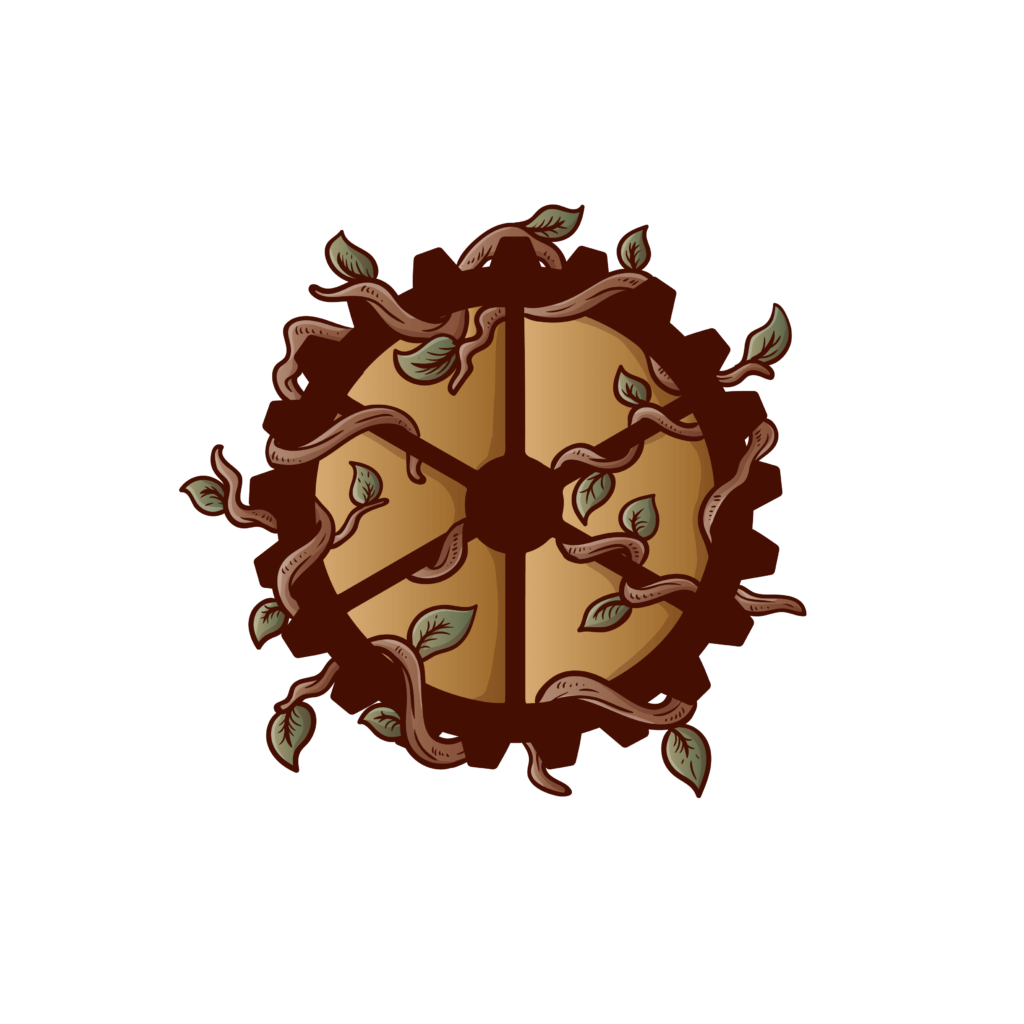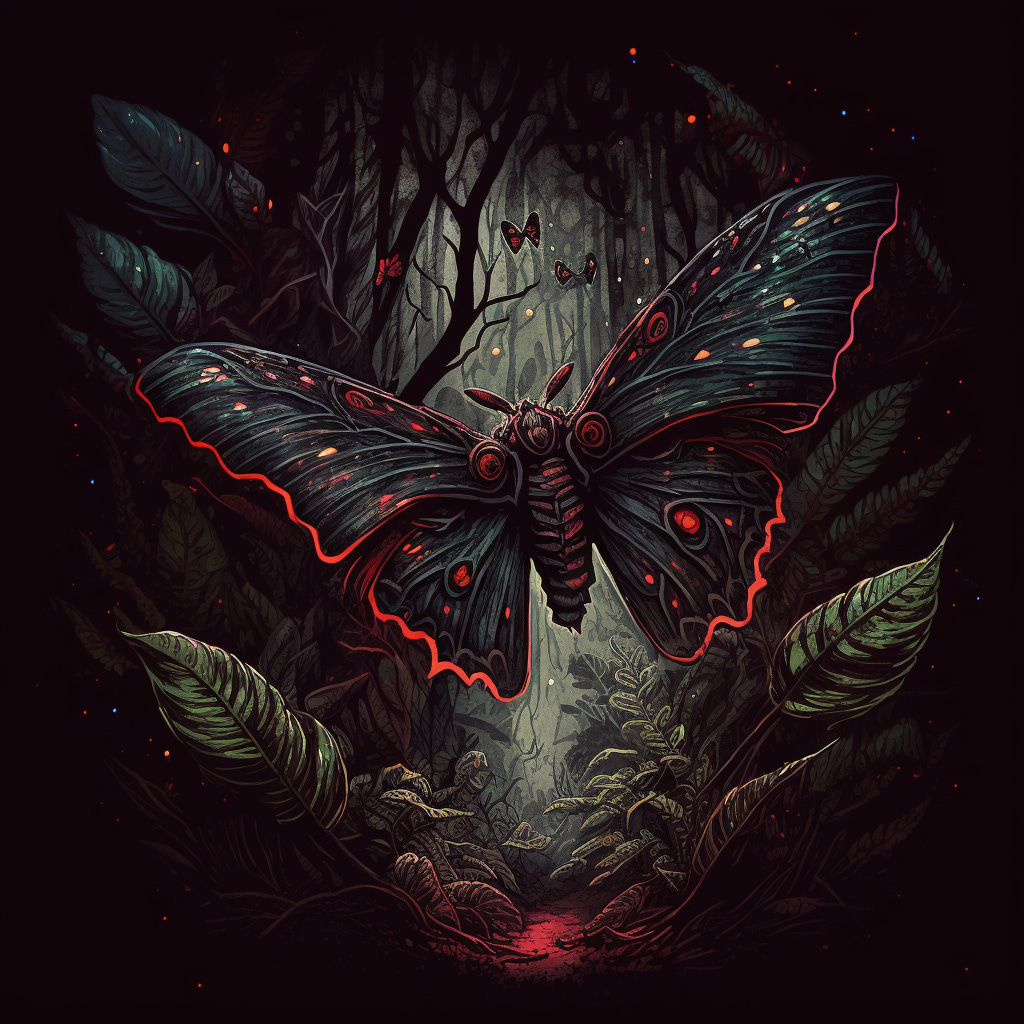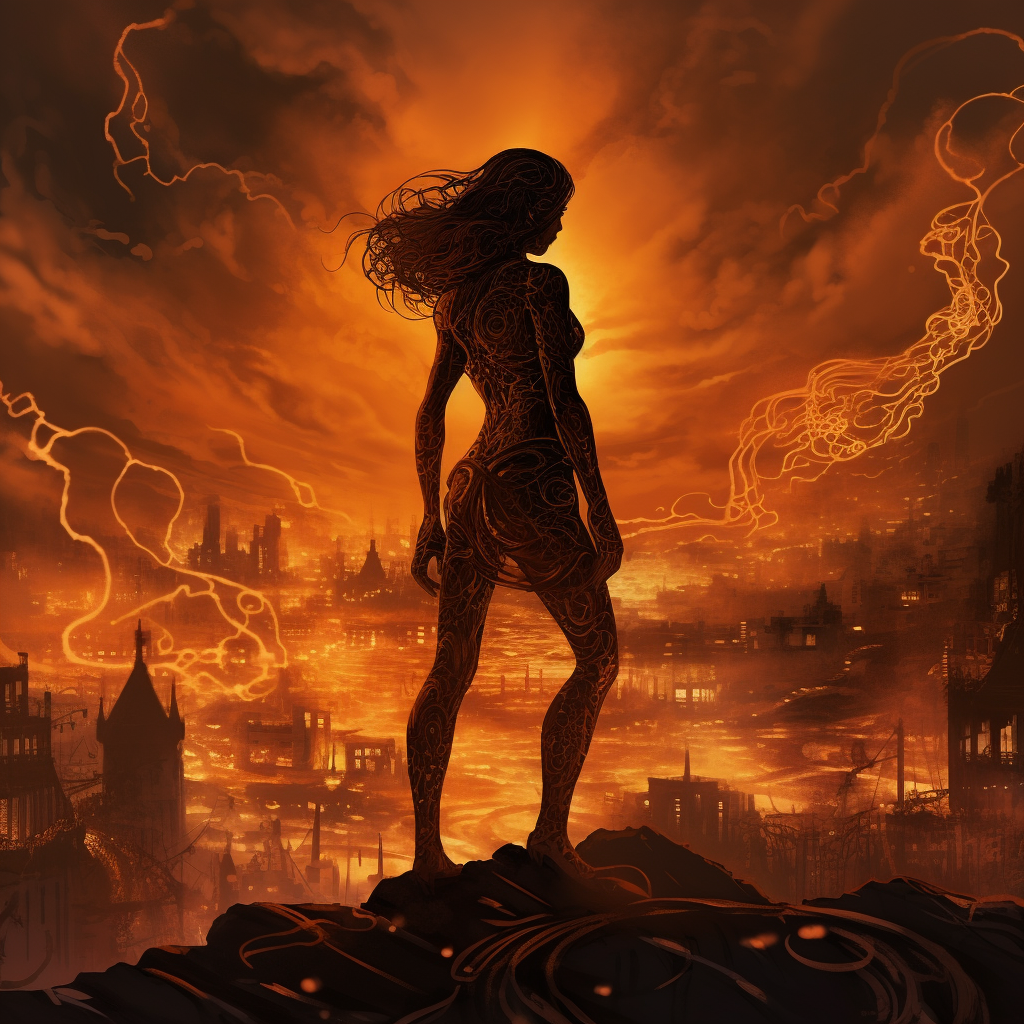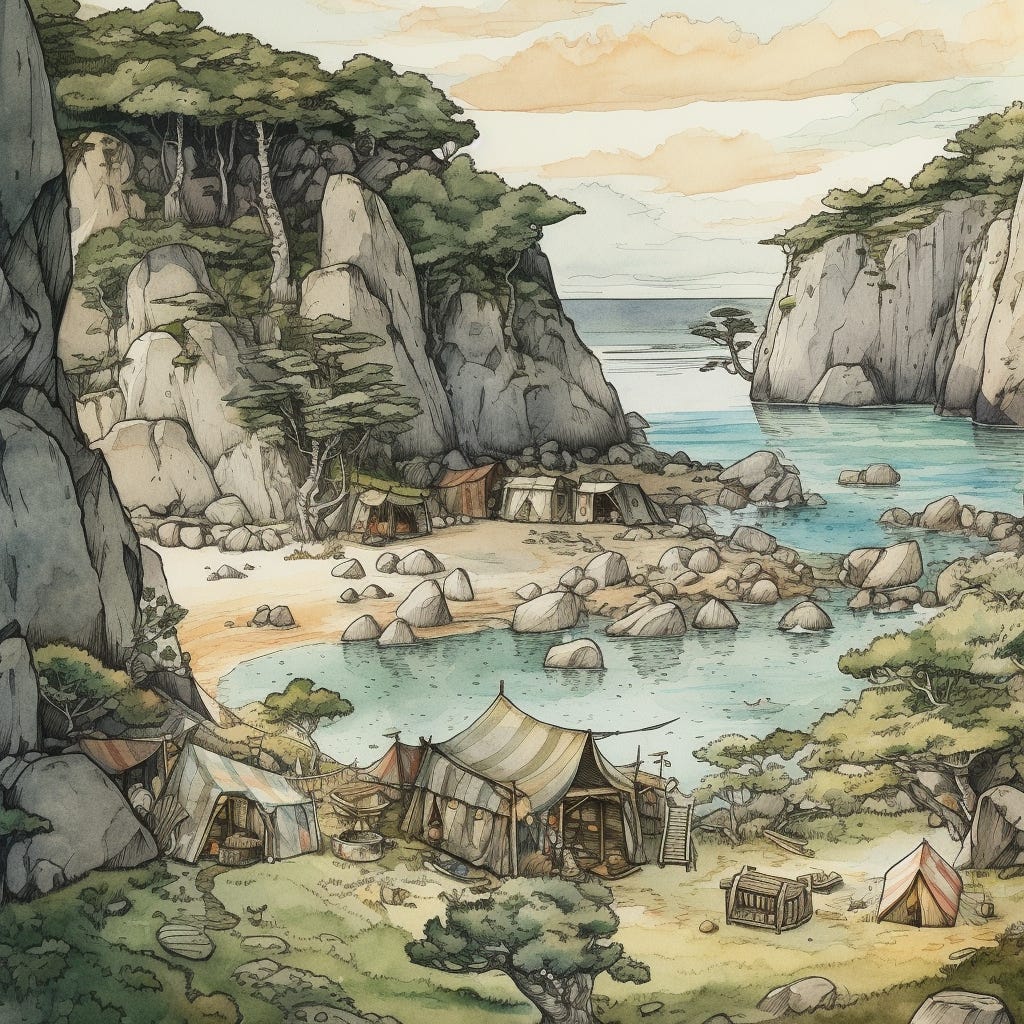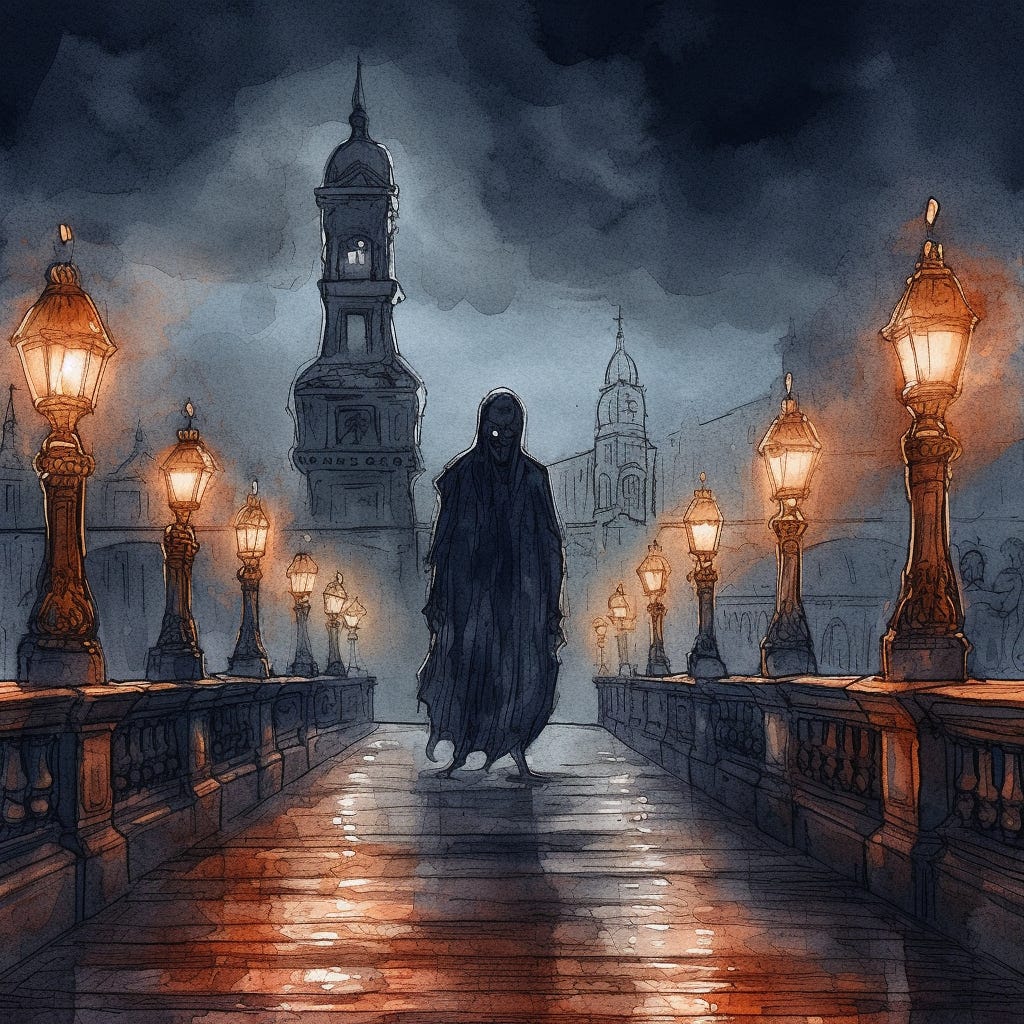Dancing Bear
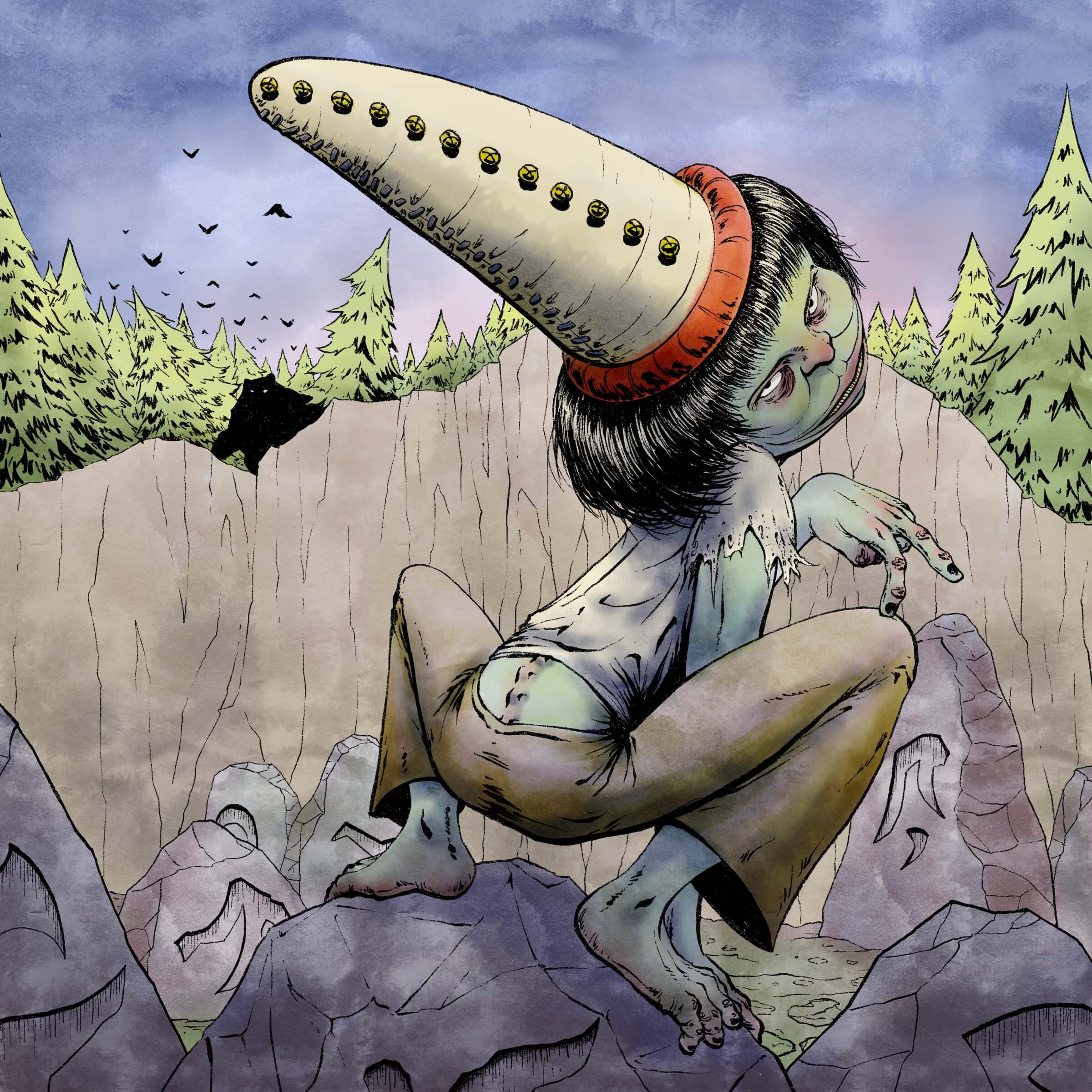
This tale was originally recounted by Horatio Sward at the 22nd Conclave of Bards. Subsequently, the Imperial Court officially disavowed any knowledge of the existence of Perdita or the disappearance of Antonio Stave.
The strangest thing was that the babe had not cried out.
Not a whimper. Not even a burble of fear as Antonio Stave laid her on the ground. She barely squirmed as he swaddled her with silk and damask, carefully placing gold and gems within the folds of fabric wound tight about her fragile body. She had been colicky the entire long voyage to these distant shores on the far side of the Mede Sea, but something about this forest — tall, dense, black — and the harsh crags of rock surrounding this clearing by the shoreline seemed to quiet her.
Antonio shifted uncomfortably as he scanned the treeline for signs of life. His soaked boots chafed. His face felt tight from too much sun, salt, and damp. His chapped lips snagged on his tongue as he moistened them.
Enough of this. Enough.
The whole business was damnable. And yet here he was, committing a mortal sin despite his best intentions, his complaints, his pleas for sanity — or at least leniency. No, neither Antonio’s sword nor his sea-bedraggled finery could disabuse what he now knew about himself: He was a terrible person, willing to commit terrible deeds to maintain his place at court. And the Emperor had been a friend once, had he not?
If he finished the deed today, death would be too good a punishment for Antonio. But he was too much of a coward to stand his ground at court. Too much a coward to exile himself from the comforts of Amalcross. Too much a coward to stand up to the Emperor when the life of a child hung in the balance. And now it was far too late to turn back.
So, here he was abandoning a sweet babe to the harsh elements, like an unwanted kitten left in a field to die.
Antonio put his ear to little Perdita’s lips, just to hear her breathe. Her quick, shallow breath on his cheek was the only pleasant warmth for miles. Life persisted.
He straightened up and scanned the treeline. Gnarled branches clung at each other, and moss draped like a cowl over the clearing and the weathered stones. A strong wind whipped the treetops; the branches clattered and groaned.
But still the child did not whimper.
He shook his head. She was braver than he was, that much was clear. If there was any justice in the world, some shepherd would find her, and she would live. The blot on his soul would be somewhat less. He must trust in the goodness of strangers. There was nothing more he could do.
He glanced once more at the babe lying still on the gravelly strand. Then he turned and began the walk to the beach and toward the rowboat that waited for him bouncing in the surf.
Antonio was about halfway to the water’s edge when the babe cried out: One horrible shriek, then suddenly silent again. He froze, recalling the cries of his own daughters as they gasped their first breaths upon entering the world. Those had been cries of happiness and surprise. Little Perdita’s cry was something else.
Electric fear coursed through Antonio’s bones. His sweat went cold. He turned to see the child writhing as she tried to free herself from the luxurious swaddle. Then he understood.
Perdita’s silence upon their arrival was fear. Only now — as a dark fog overtook the noonday sun and the howling wind roiled the treetops — did Antonio know that he’d been put to shore at a cursed point. As a young pup knows a threat from afar, so golden-haired Perdita, the unwanted child, could sense a malign presence lurking within the woods.
And looking more closely at the looming rocks and the too-wild trees, he perceived their true form: The moss draped branches overhung a small clearing — the space that had so enticed him with its semblance of safety from the elements — and the stones rose like walls on either side. Etched upon their surfaces were marks, glyphs that glowed purple and evil and slithered before his eyes. He could still leave Perdita, leave her in the hands of fate on this fell shore and return to his fat and happy life in warmer climes.
He swallowed.
Perdita was meant to be hidden away, not lost to an ancient and profane malevolence. He could not consign her to this. Antonio looked longingly toward the rowboat, pitching to and fro on its line in the rising surf. The bark that had brought them seemed miles away, though it was but a few hundred yards beyond the crashing breakers.
And then Antonio heard the noise.
Ring-ting-a-ling, ring-ting-a-ling-ding.
Bells, echoing from the woods. Something shifted within him. Sickness welled up in his stomach as he understood finally that his soul hung in the balance. He could not commit this act — could not expose the innocent one to be devoured or frozen in the night or baked by the sun — and live with himself for even one second.
He rushed back to the clearing to gather up Perdita in his arms and then run — run! — back to the rowboat. He scrambled and tripped but at last scooped the child back into his arms. She began to cry, a keening wail. He brushed the sand from her and wheeled around, frantically looking for the source of the ringing.
Ring-ting-a-ling, ring-ting-a-ling — closer.
Antonio gulped and held the babe close.
Ring-ting-a-ling — and a man leapt out from the trees.
“Leave her.”
The voice was a cloying whisper, poisoned honey on the tongue, and the stranger began to dance a slow circle about the foul sanctuary. He flashed a too-wide grin, neck flip-flopping about at odd angles. The silver bells that adorned his hat and rough shepherd’s clothes a-ring-ting-tingled in time with each lurching movement.
“Leave her, or I’ll call it.”
Antonio swallowed, tasting fear on his lips, then spoke. “What will you call, o’ devil?” And he drew his sword. The weight of it in his hand reassured him. “Leave us be, and I’ll let you live,” he growled, hoping the stranger did not hear the tremble in his voice.
The dancer cackled and hooted and shrieked. “Let me live? Let me live? Alive, you think me? I think you dead, and the wind take them!” He clapped, once, twice, sending the bells a-jingling.
There was silence. The glyphs seemed to pulse brighter and brighter.
Then the wind howled, rising into a wrathful gale. The trees quaked and sand hissed through the air. Perdita, her delicate skin stung by the flying grit, shrieked once more and Antonio hunched to shield her.
A crash tore the air, followed by the piercing screams of dying sailors. Antonio looked over his shoulder to see the bark folding like paper under towering waves, its crew mere corks in the surging ocean, then spattered and broken upon the rocks.
In an instant, the craft — their one mode of escape — had disappeared beneath the sea, taken under by the briny wash.
Reeling with grief, Antonio turned, faced the stranger, and brandished his sword. “Who are you?” he gasped.
“The Clown, they call me,” the dancing man said. He licked teeth filed to sharp points. He cupped his hand to his ear as if to listen to a far off sound. He smiled, then. “He is coming.”
Antonio lunged, but the Clown danced away, easily defying the searching point of the blade.
“Enough!” Antonio snarled. “Enough. Fight me or begone. Fight. Fight me like a man!”
The Clown giggled. “How could I, when I am but a Clown?”
Antonio roared and lunged again. Again the Clown danced away, leaping into the air and then squatting, frog-like, atop one of the rune-carved stones. “He is coming.”
The air went still. Without the roaring wind, the only sound was the keening of the babe in Antonio’s arms. His eyes darted from the Clown to the trees and back. Nothing moved.
“Who?” Antonio asked.
“Why,” said the Clown, “my dancing bear.”
Antonio steeled himself. With every rustle from the trees he whipped about, brandishing his sword. He’d stuck enough boars and bears on the hunt. What was one more? Then he’d skewer this Clown, hang the little shit from the rocks by the innards, and hire a boat from the nearest fishing village to take him home to Amalcross. Him and Perdita. Fuck the Emperor and his orders. If the Emperor couldn’t keep it in his pants, the least he could do was take care of his unwanted offspring himself. Antonio was done carrying that burden for him. This was his final stand.
The Clown shook his head, sending the bells a-tinkling, and then whistled, high and piercing.
A roar crashed across the beach. The trees swayed as some great, lumbering shape charged through them. Antonio shifted to hold his sword outstretched, ready to strike, and Perdita away from the oncoming beast. A fetid smell — a melange of rotting corpses and sour milk — wafted over the clearing, overpowering the briny odor of the sea.
And then the beast burst forth, spewing spittle and snarling.
Antonio stumbled backward. If it was a bear, it was unlike any bear he had ever seen. It stood twelve feet tall at the shoulder, with fur matted black and green. Its claws flashed like metal razors, and its teeth dripped with bubbling poison. The creature swiped at Antonio. He ducked; the massive paw grazed his billowing sleeve.
He backed away, his sword wavering. The bear circled, the Clown cackled, and Antonio took in the full enormity of the monstrosity facing him: It was as if it had been sewn together from the dismembered parts of a dozen bears. The claws of one with the legs of another, ribs protruding here, and plates of metal melded into its flesh. Whatever forbidden art had wrought this horror, it seemed to pulse and beat with an otherworldly power. Mushrooms and fungi sprouted from its rotting flesh, and its bloodshot eyes rolled about as if it endured permanent pain and constant hunger.
“Dance, dance my furry friend!” the Clown sang, shaking his bells. And then he glared at Antonio. “Feed yourself to my beastly friend, and I’ll suckle the babe myself. I’ve always wanted a daughter.”
Cowardice worms its way into the soul. It did so now to Antonio, when he felt himself back into the hard rock. There was no way to escape except a mad dash past the bear.
Perhaps he could make it. Alone.
Perdita was never supposed to return home. Not alive, anyway.
The bear approached, one heavy step at a time. Antonio knelt and placed the swaddled child on the sand. She cried and cried and cried.
The Clown only tittered.
And then Antonio ran.
The bear was big but not nimble. Antonio dodged its swiping claws, stabbed at its face — he was past it! The bear and the giggling Clown were behind him! Freedom was just down the beach. He was sure of it. He would make it. He could taste the wine already, imagine the chortles as he recounted his battle against the bear over drinks at the Borealis Club.
Then the pain bloomed hot and sharp along his leg. He collapsed onto the sand. He rolled to his back and saw the great beast looming above. He struck out with his sword, flailing desperately.
The bear snapped it like a twig in its jaws. And then the slavering beast grabbed Antonio, tossing him into the air.
Antonio screamed. The world spun. And then, with a sudden crunch of the bear’s massive jaws, Antonio went silent. He was torn in two at the waist. Gravity released his innards, and he could no longer raise his voice for his absent lungs. As he exited this world, Antonio saw the Clown pick up the babe. Somehow, Antonio thought he could hear the Clown cooing.
The bear danced upon Antonio Stave’s remains. It ate Antonio’s heart before it had even stopped beating. And, as the bear supped, the Clown held golden-haired Perdita to his breast, and, bells a-ring-ting-jingling, gently rocked her.
A-ring-ting-jingle, and the lost girl’s cries stopped. Her breath grew placid once more. The Clown cooed and swayed upon the sand. A-ring-ting-tingle-ling.
A-ring-ting-jingle.
And the bear danced on.
